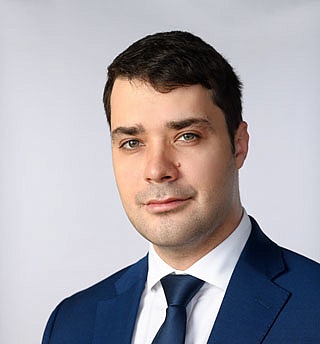Russia: Digitalisation of healthcare
3 June 2020The current global concerns over the Coronavirus pandemic create new challenges for industries, including the life sciences sector. In this regard, the ever-increasing trend of digitalisation becomes evident. This brings into focus how many countries, Russia included, regulate emerging digital issues in relation to healthcare.
Legal basis of healthcare in Russia
The legal basis for healthcare regulation in the Russian Federation is the Federal Law of 21 November 2011 No. 323-FZ on the Principles of Health Protection of Citizens in the Russian Federation. ('the Healthcare Law'), which regulates:
- the legal, organisational, and economic basis of citizens' health protection;
- the rights and obligations of persons/citizens and individual groups of the population in the field of health protection, guaranteeing of the implementation of these rights;
- the powers and responsibilities of the state authorities of the Russian Federation, state authorities of subjects of the Russian Federation, and local self-government bodies in the field of health protection;
- the rights and obligations of medical organisations, other organisations, and individual entrepreneurs in the implementation of activities in the field of health protection; and
- the rights and obligations of medical and pharmaceutical professionals.
The Healthcare Law was amended with the Federal Law of 29 July 2017 No. 242-FZ on Amendments to Certain Legislative Acts of the Russian Federation on the Application of Information Technology in Health Technology ('the Telemedicine Law'). The Telemedicine Law defines telemedicine technologies as information technologies ensuring:
- the remote cooperation of medical professionals with each other and with patients and/or their representatives;
- the identification and authentication of medical professionals and patients and/or their representatives; and
- record-keeping of measures taken during case conferences, provision of medical advice, and remote medical monitoring of a patient's health.
Medical organisations have a right to develop information systems containing data on patients, medical aid, and medical activity, in compliance with personal data laws and physician-patient privilege.
The bylaws adopted provide that telemedicine technologies may be used for:
- primary healthcare;
- specialised medical care, including high-technological medical care;
- urgent (including high-technological) medical care; and
- palliative medical care.
Subsequent application of the laws revealed the necessity for further legislative developments. For instance, in February 2020 the Council for the Development of the Digital Economy under the Federation Council (the upper house of the Russian Parliament) held a special discussion event where potential changes to the current telemedicine regulations were highlighted. Legislative incentives to simplify the use of telemedicine technologies (in particular to ease the identification procedure and promote wider use) were discussed.
On 25 March 2020, a legislative bill ('the Bill') with the goal of amending the Healthcare Law with regard to the specifics of providing medical aid in emergency situations was introduced.
The explanatory note to the Bill highlights that, under the current law, telemedicine technologies can only be used for consultations on the prevention, diagnosis, and monitoring of a patient's health and making a decision on the need for a face-to-face appointment by a medical professional. At the same time, telemedicine technologies are only possible after a full-time doctor's appointment and should not be used to make a patient's primary diagnosis and prescribe treatment remotely.
In this regard, the Bill provides for the right of the Government of the Russian Federation, in an emergency situation and/or in the event of the threat of the spread of a dangerous disease, to establish other features and procedures for providing medical care, including through the use of telemedicine technologies.
The Bill is under consideration before the Russian Parliament and subsequent developments are not precluded.
Online sale of medicine
On 17 March 2020, the Russian President signed a decree allowing the online sale of over-the-counter medicine. Such sales under the decree may be undertaken by licensed pharmacies.
The decree outlines that the Russian Government should strengthen control over compliance with the requirements of the legislation of the Russian Federation in the sphere of the circulation of medicines, including in relation to retail trade of medicine carried out remotely and the requirements to prevent the circulation of falsified, counterfeit, substandard, and unregistered medicines and should, if necessary, submit proposals for legislative amendments aimed at increasing the responsibility of pharmacy organisations in the implementation of online retail sale of medicine.
Further development of regulations for online sales of medicine soon followed. The Russian President subsequently signed Federal Law of 3 April 2020 No. 105-FZ on Amendments to Article 15.1 of the Federal Law on Information, Information Technologies and Protection of Information and the Federal law on Circulation of Medicine ('the Amending Law').
The Amending Law allows retail sale of medicine by pharmacies, with the exception of:
- prescription medicinal products;
- narcotic medicinal products and psychotropic medicinal products; and
- medicinal products containing alcohol with a volume fraction of ethyl alcohol greater than 25%.
Pharmacies need to have a licence for pharmaceutical activities and the corresponding permission of the state regulator must be obtained within the special procedure.
The Amending Law also provides for blocking of websites that infringe the established requirements, e.g. offering for sale medicine which is not subject to online retail trade or retail by non-licensed entities.
Legislative incentives for artificial intelligence
The Russian President signed Federal Law of 24 April 2020 No. 123-FZ on Conducting an Experiment to Establish Special Regulation in order to Create the Necessary Conditions for the Development and Implementation of Artificial Intelligence Technologies in the Subject of the Russian Federation - the federal city of Moscow and Amendments to Articles 6 and 10 of the Federal Law 'on Personal Data' ('the AI Law').
The law may be interesting to IT-companies operating in the field of healthcare technical solutions since it provides the legislative framework for artificial intelligence ('AI') technologies use. Herein, AI is defined as a set of technological solutions allowing the:
- emulation of human cognitive functions (including self-learning and search for solutions without a pre-set algorithm); and
- retrieval of results when performing specific tasks that are comparable, at least, with the results of human intellectual activity.
The plethora of technological solutions includes:
- information and communication infrastructure (including information systems, information and telecommunications networks, and other technical means of information processing);
- software (including those that use machine learning methods); and
- processes and services for data processing and search for solutions.
The AI Law introduces an experimental legal regime for businesses engaged in such technologies. To participate in this legal regime, businesses need to be included in a special register. The purposes of the experimental legal regime will be:
- creating favourable legal conditions for the development of AI technologies;
- testing of AI technologies and results of its application in the subject of the Russian Federation - the federal city of Moscow; and
- assessment of the effectiveness and efficiency of implementing a special regulation based on the results of establishing an experimental legal regime.
The law will become effective from 1 July 2020 and it remains to be seen what fruit it may bear with regard to the digitalisation of healthcare in Russia.
Conclusion
The growing role of digital technologies on the one hand may substantially change the legal environment, while on the other hand it may also introduce new developmental opportunities for the relevant stakeholders and businesses.
In this regard, companies operating in life-sciences sector need to be attentive to the current developments to be ready to adapt to the new regulations.
Furthermore, due protection of intellectual activity results, including the rights to software, databases, technological known-how, and inventions, will still be a point of significant importance throughout further digitalisation of healthcare in Russia.










